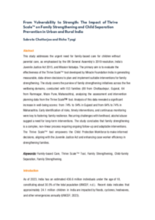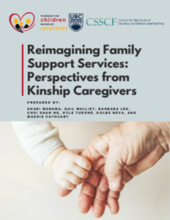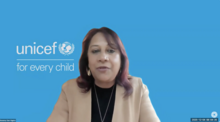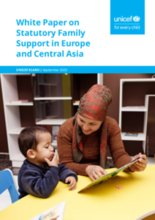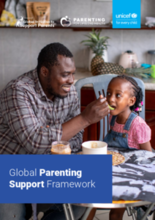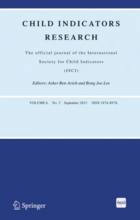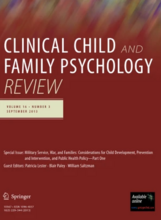Displaying 1 - 10 of 947
This study addresses the urgent need for family-based care for children without parental care, as emphasised by the UN General Assembly’s 2019 resolution, India’s Juvenile Justice Act 2015, and Mission Vatsalya. The primary aim is to evaluate the effectiveness of the Thrive Scale™ tool developed by Miracle Foundation India in generating measurable, data-driven decisions to plan and implement suitable interventions for family strengthening.
This report presents findings from a 2022 consultation with kinship caregivers across British Columbia, highlighting their experiences navigating children and family services. Analysis revealed the need for recognition and respect for kinship families, improved access to consistent and equitable supports, trauma-informed and culturally grounded practices, and stronger collaboration with service providers, with caregivers’ calls for action emphasizing system improvements to sustain caregiving and promote children’s well-being.
The report analyses existing parenting support policies, programmes and service models relevant to child protection and care reform. Drawing on international evidence and national sources, the review highlights the role of parenting support in preventing family separation, strengthening caregiving capacities and improving child well-being across the life course.
Investing in parent and caregiver support is one of the most impactful and cost-effective actions countries can take to advance children’s rights and accelerate progress toward the SDGs.
Governments across Europe and Central Asia have advanced child care reforms, yet many children—especially those with disabilities or from marginalized communities—still face risks of separation without strong statutory family support systems in place. This White Paper outlines the essential policies, services, workforce standards, and rights-based approaches countries need to prevent unnecessary separation, strengthen families, and ensure every child can grow up safely in a supportive family environment.
This book chapter examines the child welfare system, parental challenges, and family resistance, presenting a theoretical framework for building family resilience. It highlights stressors such as financial instability and mental health issues, and emphasizes collaborative, dignity-centered strategies that combine social work, mental health, and community support to improve outcomes for parents and children.
The Family Network Pilot (FNP) aims to help UK children stay safely within their extended families and prevent entry into care by providing Family Group Conferences and Family Network Support Packages. This report evaluates the pilot’s implementation, processes, and impacts across seven local authorities, using qualitative research and monitoring data analysis.
This Framework outlines how countries can build strong, coherent, multisectoral systems that ensure all parents and caregivers have access to the support needed to raise children in safe and nurturing environments, providing a shared foundation for aligning policies, financing, workforce development and service delivery across health, education, social protection, child protection and community-based services.
This study examined the link between child neglect and family protective factors among 936 parents in Hatay, Türkiye, a region marked by migration, cultural diversity, and economic hardship. Results showed that stronger family protective factors were associated with less neglectful behavior, emphasizing the need for family-centered prevention efforts in disadvantaged, multicultural contexts.
This review examined 39 studies on parenting interventions for Southeast Asian families in low- and middle-income countries and diaspora communities, identifying 31 distinct programs that generally improved parenting practices and child behavior. Findings support the effectiveness of these interventions while emphasizing the need for more rigorous research, clearer documentation of adaptations, and stronger evaluation methods to maximize public health impact.

